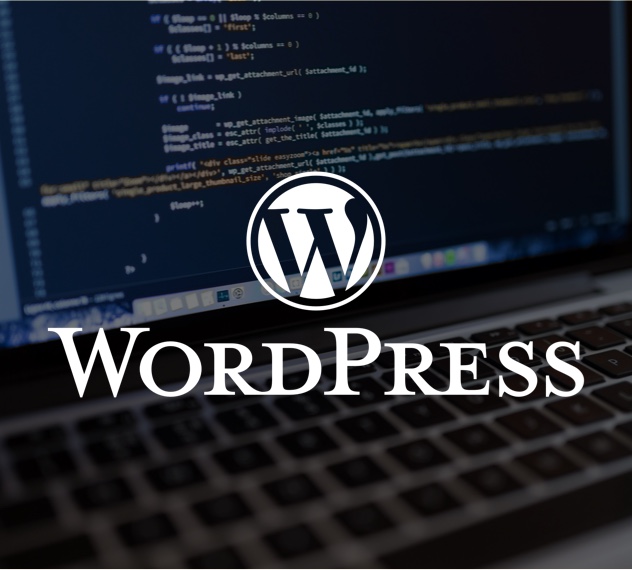
WordPress started in 2003 as just a blogging system, but has evolved to be the largest website platform in use today. In fact, as of 2023, WordPress powers 43% of the entire internet—that’s 835 million websites!
Most people think WordPress is a blogging platform or a theme-based, ready-made website builder. While both of these uses are accurate and common, the WordPress platform can be so much more.
In fact, “14.7% of the world’s top sites are powered by WordPress, counting the NFL, NBC, and CNN as just a few among the Fortune 500 companies that use WordPress as their preferred CMS”.
When we discuss completely custom-designed websites built on the WordPress platform, that can sound like an oxymoron to someone who only knows WordPress as a pre-built theme-, or template-based website building platform.
But when we talk about WordPress, we’re talking about its primary use – a content management system (CMS). This means we can build any type of website, completely custom-designed and tailored to our clients’ content and business goals, and also use WordPress’ functionality to allow our clients to easily edit their websites content.
We almost always recommend building on the WordPress platform for any clients that want to manage their website content themselves. A CMS is absolutely necessary if you plan to have a blog, have an e-commerce site where new and old inventory will need to be put up or taken down, or have any information on your website that will need to be frequently adjusted. And in a world where content marketing is key to reaching your audience and to pleasing the SEO gods, you better not leave your website content to stagnate.
Who’s using WordPress?
As a business, you’re not alone when you choose WordPress. In fact, 38% of the top 10,000 websites on the internet today use WordPress, and WordPress is actually most popular with business websites (source: managewp.com).
The New York Times, The Walt Disney Company, National Geographic, and Forbes websites are all built on WordPress. Want more examples? Check out WordPress’ showcase page here.
We’ve heard from many people that “WordPress sites all look the same,” and this is true of many pre-built themes, but would you guess all of the sites mentioned above are built on WordPress? In reality, there’s just no way to tell based on the visual design, since there are no constraints when you use WordPress.
As you can see both from highly-recognized sites like National Geographic and Walt Disney as well as our own variety of work, custom WordPress sites are just that — completely custom.
So why WordPress?
We recommend WordPress not just because it’s been the #1 CMS since 2012, but also because it’s Open Source. That means thousands of developers all across the world are constantly creating and improving the code. There are tens of thousands of plugins and widgets, as well as pre-built themes available for use. And it will only continue to improve as more and more people adopt it.
As mentioned above, the CMS is extremely user-friendly. We have worked with clients who are only familiar with basic internet use who have been easily able to learn how to update the WordPress websites we’ve built for them. We always say, “if you can use Facebook, you can use WordPress!”
WordPress is also very SEO-friendly. Just using WordPress alone, even if you do nothing else, will already put you ahead in the SEO game. WordPress inherently organizes HTML pages into an organization that is easily understandable by search engines. WordPress also allows you to easily set up page titles and headings, as well as permalinks which are all vital to on-page SEO.
WordPress is secure. We’ve heard of a many stories of site hacks both on and off WordPress, but the key factor here is the set up of the website. Often sites that are set up by non-web-professionals are vulnerable, but as long as you work with a reputable professional who knows how to set up your website to prevent attacks, you can rest assured a WordPress site is no less secure than any other type of website.
Cost
Another common misconception about WordPress websites is that they are cheaper than non-WordPress websites. This is based on the idea that WordPress websites are all pre-built-theme-based; but whether or not the website is theme-based, this misconception still won’t hold true.
Custom designs do cost more than pre-built themes, but if you try to modify the functionality or design of a pre-built theme, be prepared to start racking up development time.
We’ve found it’s actually far easier for us to start from scratch than it is to start with a template and edit it. The only exception would be if you find a theme that you’re happy with and that will require no modifications. This works for certain industries — especially portfolio themes built specifically for agencies, freelancers, or architecture firms. But most other businesses have very different goals than simply showcasing a portfolio of visual work, and for that reason, need different designs that will lead users to take varied actions in alignment with those business goals.
For more on costs, check out this very thorough run-down from Brian Krogsgard. He asserts cost can vary from $1,000-$1,000,000 and gives all the variables and reasons for that large range — we couldn’t agree more!
The websites we design typically fall under two ranges, very similar to the cost structures Brian outlines in his article above. For our smaller clients with more basic website needs, our custom sites (many of them built on the WordPress platform) will cost between $10-15k. For our medium- and larger-sized clients, we usually fall within the $20-40k range.

